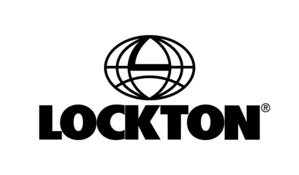KANSAS CITY, Mo., Dec. 12, 2014 /PRNewswire/ -- The world's population will rise to 9.1 billion by 2050 with food demand surging 70 percent beyond today's levels, according to the UN Food and Agricultural Organization. This explosive growth may seem daunting, but with sound risk management strategies, those in agribusiness can increase profitability while growing their market share.
"Given the strain on margins inherent in processing, risk managers are consistently looking for innovative ways to manage their business and competitive edge," said Matt Klein, Vice President and Unit Manager with Lockton Companies. "Even with the agribusiness' looming challenges, this can be done."
In his recent white paper, "Growing Your Agribusiness," Klein outlines seven key strategies to ensure food companies are best positioned in the dynamic and changing agribusiness marketplace:
- Risk Mapping: Brainstorming exposure to loss—such as natural catastrophes, supply chain disruptions, or regulatory challenges—and ranking them accordingly can help companies properly prepare.
- Workers' Compensation: Medical costs are projected to represent 70 percent of the average cost of a workers' compensation claim by 2020. Scrutinizing key drivers is an effective way to contain one's medical costs.
- Captive Insurance: This option can provide a number of insurance benefits—cost stabilization, direct access to reinsurers, and premium savings—that provide a competitive advantage.
- Contract Review: Maximizing contractual protection afforded by suppliers, and limiting commitments to customers where possible, is one of the most frequently overlooked areas as part of the risk management assessment.
- Transportation: Controlling large on-the-road exposures can eliminate a significant amount of additional regulatory and financial demands.
- Reputational Risk: Policies with broad first-party coverage for the named insured, third-party enhancements, or ancillary endorsements in the marketplace can help to maintain a favorable reputation from adverse publicity or recall incidents stemming from product adulteration.
- Total Cost of Risk: Keeping a sharp eye on all of your costs, including fixed costs, variable/retained losses, and insurance risk management overhead, will help companies achieve a competitive advantage.
These strategies, in addition to common risk factors identified in the white paper, will aid those in the agribusiness industry through an ever-changing environment.
"Acting judiciously to stay abreast of opportunities associated with speculative risk will ensure that your agribusiness is poised to competitively capture market share while the global economy continues to grow," said Klein.
About Lockton
More than 5,300 professionals at Lockton provide 41,000 clients around the world with risk management, insurance, and employee benefits consulting services that improve their businesses. From its founding in 1966 in Kansas City, Missouri, Lockton has attracted entrepreneurial professionals who have driven its growth to become the largest privately held, independent insurance broker in the world and 10th largest overall. Independent researcher Greenwich Associates has awarded Lockton its Service Excellence Award for risk management for large companies. For six consecutive years, Business Insurance magazine has recognized Lockton as a "Best Place to Work in Insurance." To see the latest insights from Lockton's experts, check Lockton Market Update.
Photo - http://photos.prnewswire.com/prnh/20141212/164162-INFO
Logo - http://photos.prnewswire.com/prnh/20090415/CG99351LOGO
To view the original version on PR Newswire, visit:http://www.prnewswire.com/news-releases/seven-strategies-to-spur-agribusiness-growth-during-challenging-times-300009119.html
SOURCE Lockton
Related Links
WANT YOUR COMPANY'S NEWS FEATURED ON PRNEWSWIRE.COM?
Newsrooms &
Influencers
Digital Media
Outlets
Journalists
Opted In





Share this article